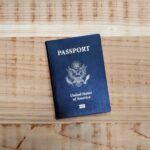Welcome to FindBiometrics’ digest of identity industry news. Here’s what you need to know about the world of digital identity and biometrics today:

Government Projects and Police Biometrics
The US Army has received an undisclosed amount of capital from the Technology Modernization Fund (TMF) to support its development of a “Security Operations Center-as-a-Service”, or “SOCaaS”. As FedScoop reports, the SOCaaS project will help to enhance network cybersecurity across arsenals, depots, and ammunition plants. The TMF also announced funding for the Office of Personnel Management to improve its website’s user experience, and for the Department of Housing and Urban Development to implement a cloud platform that connects with Login.gov.
Police and municipal officials in South Bend, Indiana, are planning to deploy a surveillance camera network featuring facial recognition. The aim is to feed surveillance footage into a central “Real Time Crime Center”, which has received approval for funding from the city’s Common Council. Police and city authorities are asking for feedback from the public, and have published an official policy concerning the use of the surveillance cameras, including a provision that cameras will only be deployed in public areas “where no reasonable expectation of privacy exists,” reports the South Bend Tribune.
Police authorities in the Pakistani city of Rawalpindi plan to register the biometric data of firearm owners and dealers. As The Express Tribune reports, biometric verification will be done at police stations. The police are acting in response to a report from an intelligence agency, and are looking to crack down on the illegal arms trade. It isn’t yet clear what biometric systems or modalities will be used in the registration process.
Facial recognition technology helped the New York Police Department to identify and apprehend the suspect in the fatal stabbing of a subway commuter last week. The assailant, Alvin Charles, had been charged last year with attempted murder, but was released under community supervision, according to a New York Times report. His fatal knife attack against Thomas Bailey, a commuter who was unknown to him, was captured on surveillance video. The Times reports that Charles’ lawyer is “wary of the facial recognition software used to identify his client.”
BIPA Cases
Envoy Air, a subsidiary of American Airlines, will pay $300,000 to 350 claimants in a class action lawsuit filed under the Biometric Information Privacy Act. The plaintiffs alleged that the airline collected workers’ fingerprint and handprint biometrics for a time and attendance tracking system without obtaining their written consent, a violation of BIPA. The settlement has received preliminary approval from the presiding judge.
NIST Rankings
Innovatrics’ iris recognition algorithm has ranked among the top three in terms of both accuracy and speed in the National Institute of Standards and Technology (NIST)’s IREX 10 testing program, the company has announced. With respect to balancing accuracy and speed, Innovatrics’ latest performance makes a compelling case for the company’s solution as an industry leader, as illustrated in a graph of the results on Innovatrics’ website.
Facial Recognition
Clearview AI doesn’t know how many individuals are in its 30 billion-image database. Speaking to FindBiometrics, CEO Hoan Ton-That explained that Clearview’s facial recognition platform “doesn’t have a concept of an ‘identity’,” but is rather designed to just bring up a list of results for a given search query. Ton-That has been endeavoring to address criticisms not just of his company’s platform but of facial recognition more broadly. Read our full story.
Airport Biometrics
Korea Airports Corporation has established agreements with multiple domestic banks to lay the foundation for a biometric passenger processing system. With the use of facial recognition ramping up at airports around the world, the KAC is charting an alternative route, opting for a system based on palm vein biometrics. Interested consumers will have the option of enrolling their biometrics and phone numbers with nine different banks, including Daegu Bank and Hana Bank, which will enable them to more easily pass through airport screening using biometric scans.
Product Launches and Partnerships
Yoti has partnered with Department of Trust in a bid to extend its presence in the gambling sector. Department of Trust is a KYC specialist registered with the United Kingdom’s financial conduct authority to operate as an Open Banking agent. It offers a budgeting app, BetBudget, that is designed to let consumers manage multiple gambling accounts. Thanks to the new partnership, consumers will be able to link their Yoti digital ID to their BetBudget financial profiles, enabling one-click registration when creating new accounts with gambling sites.
Credit card processing company Green Payments has announced a biometric Point-of-Sale solution developed in partnership with OVE Touch & Go, a San Francisco-based biometric payments startup. Their solution will enable consumers to link their payment account information to their fingerprints, and to pay via fingerprint scan at participating merchants. Green Payments will begin offering OVE fingerprint sensors through its POS platform in January of 2023.
Mobile Security
Apple and Google have together removed hundreds of apps from their respective app stores after receiving security warnings from Meta, the parent company of Facebook. Meta found 400 apps, some disguised as photo editors and mobile games, that were designed to harvest users’ login credentials. Apple said that 45 of them were in its store, and have now been removed, while Google has removed the rest. Facebook plans to send notifications to about a million of its users to inform them that their credentials may have been compromised.
Fat Bear Biometrics
It’s Fat Bear Week, and conservation researchers are asking “bear cam” fans to help them train a facial recognition system for bears. Fat Bear Week is an annual tradition in which administrators at Katmai National Park organize a contest to see which of the park’s bears has put on the most weight for the coming winter. It has a lot of fans, who watch livestreams provided by the US National Parks Service and Explore.org. Many get to know individual bears by sight, and it’s their expertise that can help researchers to refine the machine learning algorithm of the BearID Project, which is aimed at helping conservationists to track individual bears in the wild. Those who want to help are asked to use the Bear Cam Companion web app to tag individual bears as their images appear onscreen.
–
October 7, 2022 – by Alex Perala
Want to get the identity news digest early? Become a member and get the digest sent straight to your inbox, before it’s published on FindBiometrics:








Follow Us